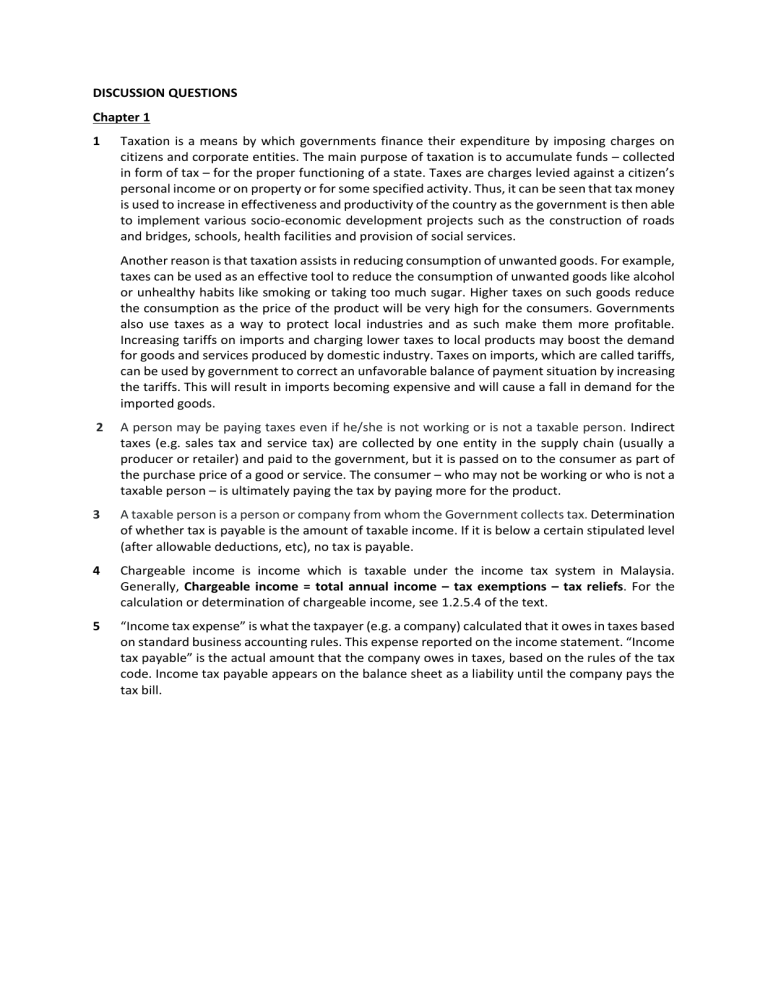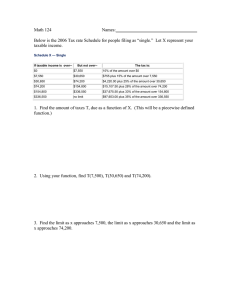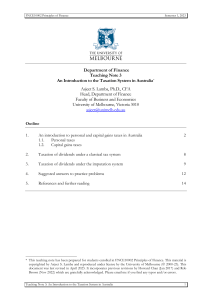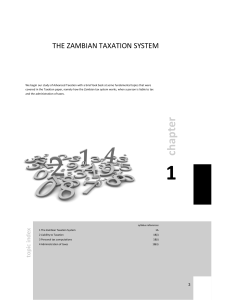
DISCUSSION QUESTIONS Chapter 1 1 Taxation is a means by which governments finance their expenditure by imposing charges on citizens and corporate entities. The main purpose of taxation is to accumulate funds – collected in form of tax – for the proper functioning of a state. Taxes are charges levied against a citizen’s personal income or on property or for some specified activity. Thus, it can be seen that tax money is used to increase in effectiveness and productivity of the country as the government is then able to implement various socio-economic development projects such as the construction of roads and bridges, schools, health facilities and provision of social services. Another reason is that taxation assists in reducing consumption of unwanted goods. For example, taxes can be used as an effective tool to reduce the consumption of unwanted goods like alcohol or unhealthy habits like smoking or taking too much sugar. Higher taxes on such goods reduce the consumption as the price of the product will be very high for the consumers. Governments also use taxes as a way to protect local industries and as such make them more profitable. Increasing tariffs on imports and charging lower taxes to local products may boost the demand for goods and services produced by domestic industry. Taxes on imports, which are called tariffs, can be used by government to correct an unfavorable balance of payment situation by increasing the tariffs. This will result in imports becoming expensive and will cause a fall in demand for the imported goods. 2 A person may be paying taxes even if he/she is not working or is not a taxable person. Indirect taxes (e.g. sales tax and service tax) are collected by one entity in the supply chain (usually a producer or retailer) and paid to the government, but it is passed on to the consumer as part of the purchase price of a good or service. The consumer – who may not be working or who is not a taxable person – is ultimately paying the tax by paying more for the product. 3 A taxable person is a person or company from whom the Government collects tax. Determination of whether tax is payable is the amount of taxable income. If it is below a certain stipulated level (after allowable deductions, etc), no tax is payable. 4 Chargeable income is income which is taxable under the income tax system in Malaysia. Generally, Chargeable income = total annual income – tax exemptions – tax reliefs. For the calculation or determination of chargeable income, see 1.2.5.4 of the text. 5 “Income tax expense” is what the taxpayer (e.g. a company) calculated that it owes in taxes based on standard business accounting rules. This expense reported on the income statement. “Income tax payable” is the actual amount that the company owes in taxes, based on the rules of the tax code. Income tax payable appears on the balance sheet as a liability until the company pays the tax bill.



